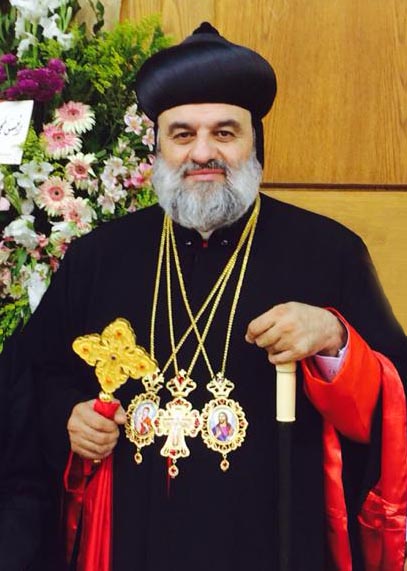CCA Condemns Suicide Bombing Targeting Patriarch Ignatius Aphrem II
 The Christian Conference of Asia (CCA) condemned the suicide bomber attack in the Church of St. Gabriel in the Al Wusta district, Qamishli, north-eastern Syria, during celebrations for the Orthodox Pentecost and in commemoration of the 1915 genocide led by Patriarch His Holiness Ignatius Aphrem II.
The Christian Conference of Asia (CCA) condemned the suicide bomber attack in the Church of St. Gabriel in the Al Wusta district, Qamishli, north-eastern Syria, during celebrations for the Orthodox Pentecost and in commemoration of the 1915 genocide led by Patriarch His Holiness Ignatius Aphrem II.
While expressing CCA’s concern about the suicide bomber attack targeting the Supreme leader of the Syrian Orthodox Church of Antioch and All the East Patriarch Ignatius Aphrem II, the General Secretary of CCA, Dr. Mathews George Chunakara, stated that the ”CCA is deeply saddened by this unfortunate event and we share the concern of all those peace loving people and communities in Asia and around the world as we pray for the blessed life and continued leadership of the Patriarch who works for sustained peace in the Middle East region ”.
The CCA General Secretary added that, “the ongoing violence by terrorist groups against the minority Christian communities in Syria and other parts of the Middle East is a serious concern. It is unfortunate that a series of five suicide bomber attacks against the Assyrian minorities in Syria took place in the past six months. The terrorist attack against any religious and cultural minority is deplorable and the international community should act collectively to stop the ongoing terrorist attacks in the Middle East”.
“It is unfortunate that a large number of Christians in the homelands where Christianity was born and rooted have already left their ancestral homes and lands as they are unable to survive because of their faith and religious identity”, Dr. Mathews George Chunakara said.
The members of the Syrian Orthodox Church of Antioch and All the East are widely scattered in various Asian countries and they include CCA member constituencies in India, Iran, Australia and New Zealand.
CCA appeals to its member churches and councils to pray specially for peace in Syria and in other countries in Middle East regions.










